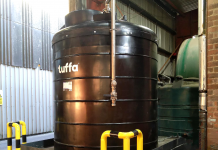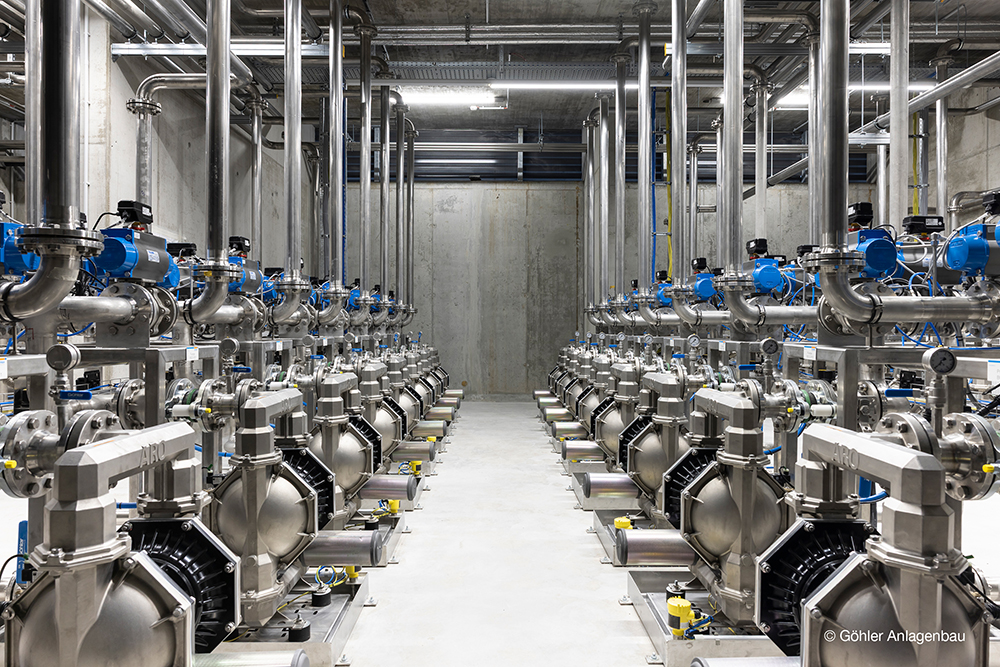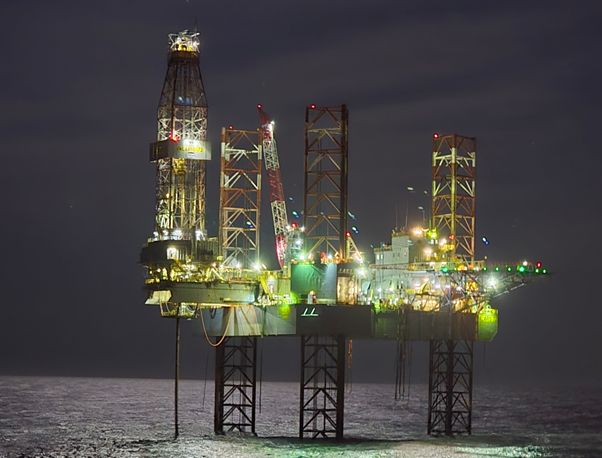Bulk liquid storage companies provide an essential interface between sea, road, rail and pipeline logistics for many different substances including chemicals, transport and heating fuels, animal feed and foodstuffs. They play a necessary role in the supply chain required to import and export goods to and from the UK, either as raw material, intermediates of finished goods. A network of import terminals, inland terminals and distribution hubs across the UK provide the bulk liquid storage capacity required for many businesses.
Tank Storage and Tank Storage Operations
Terminal operating companies typically fall under two categories, either:
- Those that own the product in their tanks – for example major oil company terminals, and trading companies, or
- Those that provide third party storage – that do not own the products in their tanks.
Third party storage businesses provide neutral and independent bulk liquid storage solutions for their customers. Tank space is available for all market players and provides an essential part of the supply chain for many industries.
Terminals provide the means to import and export products through various means including sea-going vessels, inland barges, road tankers, rail cars and pipelines. They typically store large volumes of liquids and do not normally store packed products, for example those in Intermediate Bulk Containers.
Regardless of whether a terminal operator provides third party storage or stores their own products, all are committed to achieving high standards of safety and are regulated closely by relevant agencies. In the UK, the Tank Storage Association (TSA) represents the interests of businesses which operate 76 COMAH (Control of Major Accident Hazards) terminals, and 219 non-COMAH terminals.
Key facts about Tank Storage
Europe provides approximately 30% of the world capacity for bulk liquid storage through a network of hundreds of terminals providing logistical support for industry, authorities and the armed forces. In principle any liquid product that is transported in bulk can be stored in a bulk liquid terminal.
Terminal operating companies could store a single product or multiple products, and can provide supplementary services such as blending, packaging, canning, drum filling, water treatment and analysis, warehousing and bonded alcohol storage.
Because of the varied nature of the products stored and the operations that take place terminal operators have a range of commitments and responsibilities both to their customers and to the regulatory authorities:
- Safety, Health and Environmental
- Quality
- Security, including cyber security
- Contract conditions
- Product requirements and registration (for example REACH)
- Construction and maintenance
- Tax and customs
Importance of location
Terminal locations are strategic and aim to satisfy the needs of the market and wider supply chain (their customers). They may also be placed to capitalise on product patents. For certain products, for example transport fuels, terminals may be considered as Critical National Infrastructure by Governments due to their importance in providing essential services to a country.
When considering the location of a terminal it is essential to consider access to logistical connections – is there un-restricted access to international ports, inland waterways, pipelines and road networks.
Terminal operations are present throughout the world; however, storage hubs have become established in the United States, Europe, Middle East and Asia to provide the necessary storage required for global commerce in bulk liquids.
Terminal assets
Terminals are essentially a collection of tanks, pipes, pumps and valves. They are typically not considered process plant (even though they may carry out some very simple processes such as blending).
Whilst pipework and ancillary equipment are common, tank design will depend on the nature of the products stored, for example:
- Floating roof tanks are most commonly used for products with high vapour pressures such as Gasoline and Naphtha
- Fixed roof tanks are most commonly used for Diesel and Fuel/Gas Oil
- Chemical products are typically stored in smaller closed-circuit tanks manufactured from Stainless Steel
- Temperature controlled tanks for storing viscous or other temperature sensitive substances
- Spheres and spherical tanks are used to store products under high pressure
- Local and European legislation will often determine environmental requirements for the storage of bulk liquids, including:
- Vapour recovery
- Primary, Secondary and Tertiary containment
Because of the varying nature of substances stored for customers in independent storage, one of the challenges the sector face is understanding the changing nature of regulation and standards that apply.
Logistics and supply chain management
Bulk liquid storage plays an important role in the logistical supply for many different sectors and businesses, one definition can be described as:
‘the intermediate accommodation for conservation of liquid products – i.e. products in large definite volumes but of no fixed shape. Bulk liquid storage provides the interface between production and distribution’
Bulk liquid storage can change its nature depending on the logistical function it is providing, for example:
- General storage, for multi-purpose use to several customers
- Dedicated storage, for specific substances, customers or infrastructure needs (for example transport fuels)
- Tailor-made storage, for specific customers and substances which require special handling, design and construction of storage facilities
- Value added storage, whereby the terminal provides additional intermediate services such as blending and packaging
- Strategic storage, storage for political purposes (for example Compulsory Stocking Obligations, Military use)
Terminals provide an essential component of many complex supply chains and therefore form part of the system of organisations, people, activities, information and resources involved in moving a product from a supplier to a customer or end user. A terminal operator could appear multiple times within a supply chain providing storage for base, intermediate and finished materials.
Because of their role within the supply chain, terminal operators play an important role in helping to regulate imbalance between production and consumption or supply and demand. This is achieved through coordination and collaboration with suppliers, intermediaries, third party service providers and customers.
Decisions on inventory management – the products stored, when and for how long – are influenced by many different factors including:
- Facility engineering – the necessary assets, maintenance, health safety & environmental design & compliance, energy design & availability and quality management
- Information Technology – the necessary systems in place to manage inventories internally and externally with customers, regulators and relevant government departments (customs)
- Strategic and commercial information – replenishment lead times, carrying costs, inventory forecasting, demand forecasting and physical available space
Challenges in Europe
Managing terminal operations is a complex business due to the varying inventories of products stored and the different regulations and standards that apply. These inventories can often change quickly depending on the needs of the customer and the end market, with Europe having some of the most stringent environmental laws compliance can be challenging. Terminal operators are also faced with meeting the demands of new European directives such as the Network Information Systems and General Data Protection regulations – which could bring heavy fines for non-compliance.
There is a need to take a practical approach to regulation – 2004 saw 940 EU regulations on Health, Safety and the Environment. In 2013 this number was 1,724. This places a very heavy burden on the sector, one which supports many other businesses and provides essential services to the public such as transport and heating fuels.
Europe has an increasing demand for the import of Aviation and Diesel fuels. This change has been partly influenced by European refiners coming under greater pressure from large complex and modern refineries in the Middle East and Asia (often not subject to the same environmental standards). With global markets open to traders and importers there is a need to ensure that storage capacity is available to meet this increased demand.
In the long term there is a need to consider demands for future fuels. Many governments have set de-carbonisation targets which implies a falling demand for fossil based fuels in the future – will there be an increased demand for alternative liquid fuels, and in the interim, will the demand for the bio content of transport fuels increase. Both scenarios will continue to rely on bulk liquid storage.
Finally, the impact of BREXIT is still unknown. What influence this has on global supply chains and the domestic UK market is yet to be seen. To read more about the challenges of BREXIT, visit the newsroom on the TSA website.
Conclusion
Bulk liquid storage provides an essential part of the logistical supply chain for many different sectors. Whilst transport and heating fuels represent a larger proportion of the products stored, terminals also store chemicals, food stuffs and agricultural products that influence many aspects of our lives. With bulk storage and intelligent distribution, the industry can also achieve a positive environmental impact – cutting down on packaging and reducing transportation miles.
There is an increasing demand for storage capacity, and in order to meet this demand industry and governments should work closely to ensure that any barriers to this growth are minimised.
More information
The TSA represents the interests of forty-five member companies engaged in the storage of bulk liquids and the provision of products and services to the sector. Collectively members operate over 290 terminals and distribution hubs in the UK and have over 8 million cubic metres of storage capacity in the United Kingdom (UK) and Republic of Ireland (ROI).
For more information about the TSA and how to become involved visit www.tankstorage.org.uk.
About the author
Peter Davidson is Executive Director of the Tank Storage Association and sits on the Executive Committee of the Federation of European Tank Storage Associations (FETSA).










